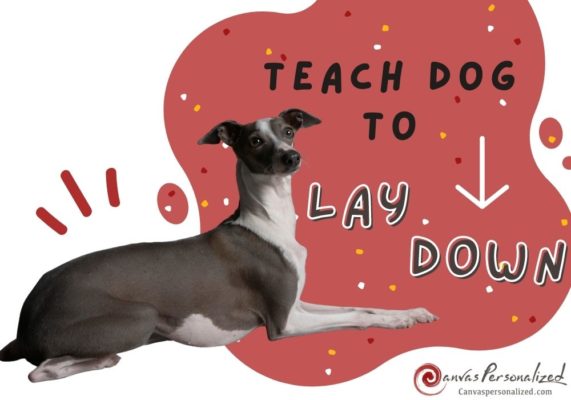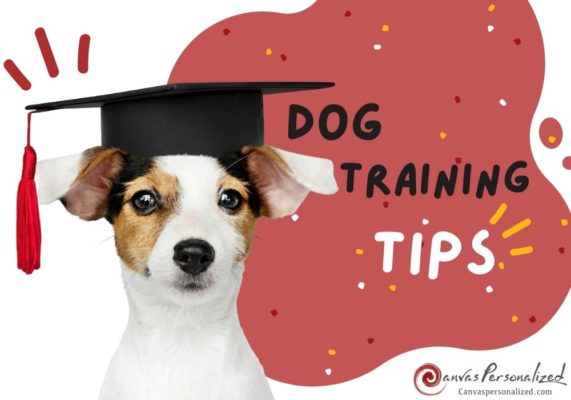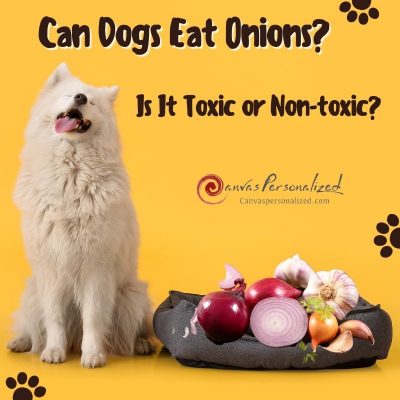The onion enhances the flavor and texture of many foods. But can dogs eat onions? Unfortunately, dogs should NOT eat onions. They are one of the most toxic human foods for dogs. Hemolytic anemia is a serious medical condition that can develop if a dog eats too much onion. In this article, Canvas Personalized will go through the pros and cons of feeding your dog onions, as well as the symptoms of onion poisoning and what to do if you think your dog has eaten one.
1. Are Onions Bad For Dogs?

Yes. Onions are bad for dogs. N-propyl disulfide is a poisonous ingredient found in onions. In dogs, this chemical induces anemia by destroying red blood cells. The poison binds to oxygen molecules in your dog’s red blood cells, triggering oxidative damage. This hinders the red blood cells’ ability to transport oxygen and causes your dog’s immune system to mistake the cell for a foreign intruder. Hemolysis, also known as the destruction of red blood cells, causes hemolytic anemia.
Onions are toxic for dogs in all shapes and forms. Onions are a popular ingredient in human foods and kitchen staples; as such, you should use caution when preparing them and keep them locked away when not in use.
2. How Much Onion Is Toxic To Dogs?

In general, poisoning happens when a dog consumes more than 0.5% of their body weight in onions in a single serving. A dog can be poisoned by eating even a small amount of onion, garlic, or another toxic allium food. While a 150-pound mastiff might be fine after eating an entire onion, a 10-pound chihuahua might experience major health problems. Onions are toxic to dogs, so be cautious about where you keep them in the house.
3. Symptoms of Dog Onion Toxicity

- Anemia is something to watch out for if you think your dog has eaten onions.
- Lethargy
- Weakness
- Loss of Appetite
- Pale gums
- Fainting
- Blood in the urine
Other symptoms of onion toxicity in dogs include vomiting, a rapid heart rate, and excessive panting, according to the American Society for the Prevention of Cruelty to Animals.
4. If Your Dog Eats Onions, What Should I Do?

4.1. Stop all access
Keep your dog away from any more onions or onion-based foods. As much as possible, eating should be restricted. Put your dog in a separate room while you pick up any dropped items or clean up the surfaces. If your pet consumes processed food containing onions, you should check to see if they get any of it from other sources.
4.2. Find out the specifics
Measure the amount of onion your dog has consumed and note when it happened. Knowing how much onion product your pet has consumed will help the vet determine if the amount is likely hazardous based on the pet’s weight. In addition, knowing when the onion was eaten will assist the vet in determining the best course of treatment for your dog.
4.3. Contact a vet
Always consult your veterinarian, even if it’s just over the phone, to be sure you’re doing what’s best for your pet. Give the vet the data you’ve collected; they’ll use it to help figure out what to do next. If your regular vet isn’t accessible, you can get good advice from an emergency clinic or the nearest open vet.
4.4. Follow your veterinarian’s recommendations
The sooner your dog visits the vet, the better its prognosis. It is best to get professional counsel first, although your vet may be okay with you keeping an eye on your dog at home if the amount ingested is not harmful.
4.5. Never treat at home
Do not attempt to treat these issues on your own. Many home remedies are unproven or even harmful, and it is easy to do more harm than good by using them. Putting off getting expert help because you’re employing home remedies that aren’t working can lead to irreversible damage.
>>> Recommended reading: Best 20+ Healthy Foods For Dogs You Can Find In The Kitchen
5. How is onion poisoning in dogs treated?

When and how much onion your dog eats will determine how to treat their poisoning. Your veterinarian may be able to induce vomiting to remove the onion from your dog’s system before it is digested if you take it in as soon as you realize your dog has eaten the onion. However, this is only effective as a prophylactic step if action is taken promptly.
Your dog will need supportive care if it develops symptoms of onion toxicity. When the dog’s condition is life-threatening, a transfusion may be required.
>>> Maybe you’re wondering if dogs can eat these foods:
- Can Dogs Eat Couscous? Toxic or Safe?
- Can Dogs Eat Choziro? Read Before You Feed
- Can Dogs Eat Meatballs? A Comprehensive Guide In 2023
- Can Dogs Eat Goat Cheese? Exploring The Benefits and Risks
- Can Dogs Eat Pesto? Everything You Need To Know
To sum up, dogs cannot eat onions. Ingestion of even a small amount of onion can be fatal for dogs. If you catch the issue promptly and get your pet to a vet, you should be able to treat and manage it. Your pet will likely make a full recovery. And don’t fear; other vegetables like carrots, cucumbers, and broccoli are all completely safe and healthy additions to your dog’s diet.










